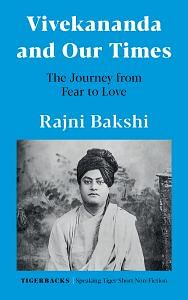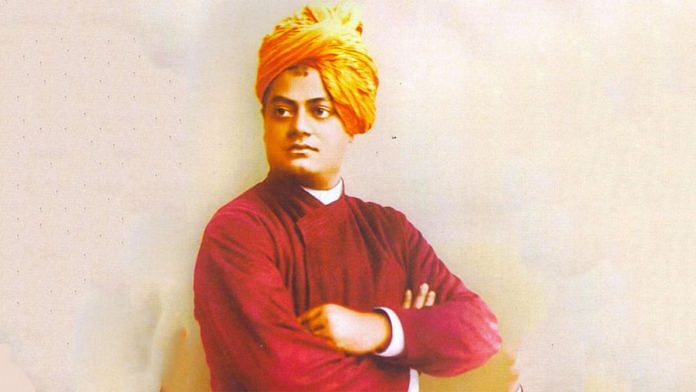Others already believed that Sri Ramakrishna was a Paramahamsa—one who has attained the highest spiritual state. But to Naren, at first, Ramakrishna seemed like a ‘brain-sick baby, always seeing visions and the rest. I hated it.’ He was not the first to say so. Ramakrishna’s family had thought him insane, till a conference of pundits declared him a Divine Incarnation.
The pundits’ verdict did not impress Naren either. Likewise it seemed absurd when Ramakrishna insisted that Naren was himself the incarnation of a great sage come to fulfil a divine mission. He also refused to worship the Goddess Kali. ‘How I used to hate Kali and all her ways!’ Naren was to say later. He was convinced that God had to be formless.
When Ramakrishna spoke of the divine revelations he experienced, Naren said: ‘Who knows whether these are revelations from the (Divine) Mother or mere fancies of your brain! If I were in your position I should attribute them to imagination pure and simple.’ Yet Ramakrishna’s self-evident piety, his ‘wonderful love’ and ‘marvellous purity’ drew Naren. This kept him locked in an intense tussle with the man he eventually accepted as his Guru. Naren was deeply moved by Ramakrishna’s insistence to ‘be spiritual and realise the truth for yourself.’
So Naren continued to search and question. He ridiculed the ideas of Advaita Vedanta saying: ‘I am God, you are God, these created things are God—what can be more absurd than this!’ When Naren’s insistence on his own view sometimes bordered on the fanatical, Ramakrishna would urge him to ‘try and see the Truth from all angles and in every perspective.’
Also read: Hindus didn’t record their history right. Indraprastha’s foundation, age still uncertain
Meanwhile, the premature death of Naren’s father had plunged his family into a dire financial crisis. Once accustomed to plenty, the Datta household now had barely enough to eat. Unable to find a job and provide for the family, Naren was driven to desperation.
So one day, like millions of others have done for ages, he set out to ask a favour from Goddess Kali.
As he entered the Kali temple at Dakshineswar late at night, he was ‘caught in a surging wave of devotion and love.’ Forgetting what he had come to ask for, he prayed instead for knowledge, devotion and uninterrupted vision of the Divine Mother. That night, he went two more times into the temple to ask for the material well-being of his family. But each time only the plea for devotion and divine benediction arose from within him.
An ineffable joy and serene peace overwhelmed Naren, and his life was never the same again. The change that came over him is to remain a mystery. Years later, as Swami Vivekananda, he said ‘The thing that made me do it (accept Kali) is a secret that will die with me.’
Perhaps he felt the Super Conscious opening to him. For, later, he would say with supreme confidence that till this happened ‘religion is mere talk, it is nothing but preparation.’ This did not contradict or alter his commitment to reason. It only convinced him that ‘all religion is going beyond reason, but reason is the only guide to get there.’
In Ramakrishna he found a living teacher and in the Buddha a timeless inspiration. ‘I have more veneration for that character (Buddha) than any other—that boldness, that fearlessness and that tremendous love.’
Over 2,500 years ago the Buddha had said what Naren now felt himself: ‘…do not believe merely on the authority of your teachers and elders. Have deliberation and analyse, and when the result agrees with reason and conduces to the good of all, accept it and live up to it.’
Thus later, even when Swami Vivekananda preached the message of the Advaita Vedanta and extolled the Vedic civilisation, he also said: ‘I take as much of the Vedas as agrees with reason…the greatest gift God has given us.’ He therefore respected people whose reason led them to be atheists, and had contempt for the blindly religious.
The person who was willing to die for God particularly worried Vivekananda. Such a person he felt, was equally capable of turning around and killing his own brother. For anyone who wanted to start a sectarian dispute, Vivekananda had this question: ‘Have you seen God? Have you seen the Atman: If you have not, what right have you to preach his name—you walking in darkness trying to lead me into the same darkness…’
This certitude came from the conviction that God is not someone sitting in the clouds issuing instructions to mere mortals. God is love and within all. ‘Never forget the glory of human nature,’ Swami Vivekananda said. ‘Be still and know that you are God.’
This realisation was earned through relentless concentration and meditation that took Naren deep inwards. Often, while meditating, he would lose all bodily sensation. He thus came, by his own labours, to share Sri Ramakrishna’s conviction that the various religions are not contradictory but instead several phases of one eternal religion.
Swami Vivekananda’s life journey encompassed many of these phases and extended far beyond. He was simultaneously a devout worshiper of Kali, the unseen life force of the universe, and an untiring admirer of the Buddha. The greatness of Buddha, above all human beings in history, was sealed by his dying words: ‘Let there be no false bondage, no dependence on me… The Buddha is not a person, he is a realisation. Work out your own salvation.’
But then personal salvation alone cannot be the goal of one who truly finds an ideal in the Buddha. Seeking the salvation of others is even more important. Swami Vivekananda had a firm conviction that salvation did not depend on the grace of God—because ‘freedom always is.’ Even the pursuit of spiritual ecstasy is not enough. ‘To serve Narayana, you must serve the Daridra Narayanas—the starving millions of India.’
This was also the ambitious task that Sri Ramakrishna had set for his disciples. In his last years, while he battled painfully with cancer, Sri Ramakrishna identified a select group of disciples, many of them westernised middle-class Bengali boys, to carry on this work. Naren was the spiritual inheritor of the ‘Master’, as they called Sri Ramakrishna, and the natural leader of the band of sannyasi disciples.
 Extracted from ‘Vivekananda and Our Times: The Journey from Fear to Love’ by Rajni Bakshi. Published as part of the ‘Tigerbacks’ short books series. Speaking Tiger Books, 2024.
Extracted from ‘Vivekananda and Our Times: The Journey from Fear to Love’ by Rajni Bakshi. Published as part of the ‘Tigerbacks’ short books series. Speaking Tiger Books, 2024.



